The Lotus Esprit Sport 350 Sports Car
from Classic to Modern
The Esprit Sport 350 sports car was introduced, in 1999, at the NEC Motor Show in Birmingham.
It was conceived as an attempt to ride on the coattails of the Sport 300 and the Esprit V8, with their Lotus 918, 3.5 litre, V8, twin turbocharged engine, using Garrett T25 Turbos, and with multipoint fuel injection.
It had a 0-60 mph time of 4.3 secs, a 0-100 mph time of 9.9 secs, and a top speed of 175 mph.
With adjustments to the engine management system, the lower end torque could be increased.
It was the most aggressive Esprit supercar, being both road going and suitable for the track.
The name Sport 350 came, not surprisingly, from the fact that the engine developed 350 bhp.
However, with the emergence of strict emission control regulations in the US, Lotus was somewhat limited in what it could further achieve, in terms of performance, from the Sport 350. By now, the Esprit sports car was in its twilight years.
The real benefits for the car would come from a racing orientated suspension set up, wider magnesium wheels, better brakes, a carbon fibre rear wing, and a sports interior with lightweight bucket seats.
Although Lotus targeted a production run of only 50 units to keep the model exclusive, in the end, only 47 were actually built.
Furthermore, a limited edition aluminium plaque was fitted to the bottom of the windscreen and in the centre of the dashboard, whilst red camshaft covers replaced the previous blue version.
Curiously, with all that power on tap, it was never fitted with a limited slip differential.
Externally, it differed from the 1998 Esprit V8 SE and GT variants as follows:
- A newly styled front end
- Fitting a massive carbon fibre rear wing which was supported by aluminium uprights
- Special silver paint for the body
- A silver grille mesh in the lower body openings
- The low front spoiler was made even deeper so that it was almost touching the ground
- Both front and side air vents were emphasised in blue
- Huge "Sport 350" emblems were positioned strategically on each door and on the roof
Technical Data Sport 350 TVR Cerbera 911 Turbo X50
Production 1999 1996-2004 2001-2005
Engine, cc 3506 4475 3600
Cylinders, bhp 8, 350 8, 420 6,
450
Speed mph 175 185 189
0-60 secs 4.3 4.0 4.2
0-100 mph 9.9 8.9 8.5
Torque ft/lbs 295 380 457
Standing 1/4 mile secs 12.7 12.1 11.2
Overall
fuel 19.7 18.0 -
consumption mpg
Full Screen
By fitting OZ Racing Crono Magnesio alloy wheels, this would increase grip and help reduce weight.
Furthermore, these five spoke alloys were known to be the lightest road wheels it was possible to buy.
Rigidity was improved by stiffening the suspension and adding engine bracing.
It was fitted with a Kelsey Hayes anti lock braking system.
Furthermore, to improve the stopping power, it received larger two piece, 320 mm, AP Racing disc brakes all round, which were vented and drilled.
For those requiring a more definitive exhaust note, there was an optional sports exhaust.
The dashboard was made entirely of carbon fibre to minimise weight.
Now that the overall weight had been reduced by around 80 kg, the Sport 350 was the highest performing Esprit to date, with a price tag that was a fraction under £65,000.
These weight savings contributed to it becoming the first Esprit to break the 10 second barrier for the 0-100 mph time.
In terms of Lotus models, the Esprit Sport 350 is still in demand on the second hand market. In fact, as a used Lotus, it can sell for anything from £50,000 to about £60,000.
The stunning Sport 350 sports car was regarded, in many quarters, as the fastest and finest Esprit ever built.
SPORTS CARS FOR SALE
A 1999 Lotus Esprit Sport 350 in very good condition would fetch in the region of £35,000/$55,000.
.
.
see All My Reviews
Got an interesting Sports Car story to tell?
Lotus Links

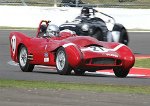

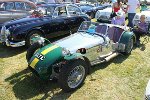
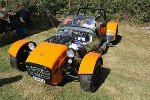

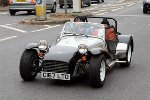


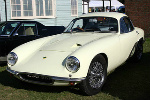
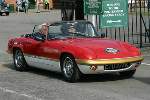
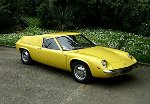
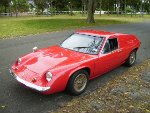
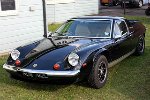

no picture
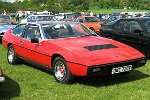
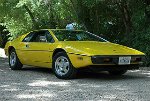


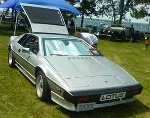





no picture


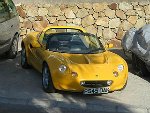


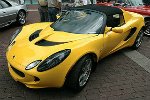
Lotus Links End





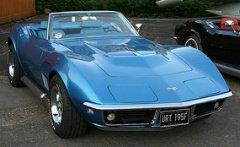
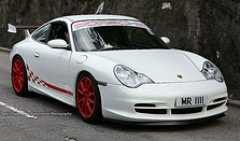
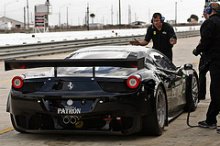
New! Comments
Have your say about what you just read! Leave me a comment in the box below.